You must have thought you saved yourself from getting lost in the cheese aisle the moment you became vegan, right? These agonisingly long moments when you stand in front of the cheese case for too long trying to narrow down your choice. Well, the butter section isn’t any better!
Organic butter, salted butter, plant-based spreads, and margarine – which is vegan?
> Read more: Is butter vegan?
Country Crock has been one of the brands with many speculations surrounding it. Even after they released their last “plant-based” version, announcing it’s totally safe and vegan-friendly, people still had doubts.
Well, nothing resolves doubt more than deep research, and that’s what we’ve done here. So continue reading to discover whether or not Country Crock is suitable for your small, vegan home bakery.
Is Country Crock Vegan? The Short Answer
Country Crock has three lines of products: buttery spreads, baking sticks, and plant-based butter. The first two lines contain dairy and lactose ingredients, kicking them out the vegan category.
As for the plant-based products, they are made from plant oils; one of which is palm oil. Despite the controversy around the said oil, Country Crock uses palm oil processed from sustainably grown palm trees, so even environment-conscious vegans can consider it safe.
What Is Country Crock?
Owned by Upfield and originally based in Detroit, Country Crock is a company that began as a butter and cheese brand in 1945, then ditched the cheese and introduced other side dishes like pasta and mashed potatoes.
The brand has nothing to do with veganism, and even when they debuted their plant-based creameries, it was for a healthier approach rather than adopting vegan concepts.
Unlike other brands deliberately starting to enter the vegan world recently, Country Crock still stands outside the line. However, since their products are more like spreads than real butter, they do come close to what veganism stands for. Instead of using milk and cream from cows, their ingredients include more plant-based oils.
Of course, they use animal-derived products, which we’ll cover in a moment, but they still get some credit for contributing less to animal exploitation and slaughtering.
Which Country Crock Products Are Vegan?
Time to get to the question of this article! We’ve already provided an answer to that, but for those looking for a more detailed explanation, let’s discover what exactly is in each Country Crock package and how it may have a negative effect on our fellow furry friends!
Buttery Spreads
Country Crock provides buttery spreads in three versions: Original, Light, and Churn-style. All of them have the same ingredients, with the exception that the Light version has additional mono and diglycerides.
The problem with the spreads and sticks constituents is that they can easily fool someone into thinking they’re vegan, while in fact, some of the substances are derived from animals.
To make our point clearer, let’s take a look at the list of ingredients in such products:
- Purified water
- Soybean oil
- Natural flavours
- Vitamin A palmitate
- Vitamin D3
- Palm kernel and palm oil
- Salt
- Lecithin
- Vinegar
- Beta Carotene
At first glance, none of these ingredients sends any signals to our vegan antenna. But upon taking a closer look, the natural flavours and vitamin D reinforce our suspicions because companies aren’t obligated to state the source of their flavouring nor the process of acquiring vitamins.
On some of the packs, Country Crock states that their natural flavours are made from spices, vegetables, and fruits. However, others contain flavouring constituents derived from meat, poultry, sea animals, milk, and eggs.
Some vegans consider this completely unacceptable, even if the amount of flavours used isn’t significant. The way we see it, given that there may be even the slightest chance that animals were hurt, killed, or exploited in the process, it’s better to avoid these products.
Yet, other people like to give the food companies the benefit of the doubt in this case, saying that since there’s no actual proof the flavours are from animal-derived substances, they can turn a blind eye to them. It’s your call!
Aside from the animal-derived flavours, vitamin D is enough to render these products non-vegan. Most of the vitamin Ds used in the food industry are derived from sheep’s wool or fish liver oil.
Of course, there is the vitamin D that we get from lichen, which is a vegan-friendly source. But you can’t guarantee it’s the source unless the manufacturer states that clearly on the packaging or you’re buying from a vegan-certified brand, like those certified by the People for the Ethical Treatment of Animals organisation (PETA).
It’s worth mentioning that some of the flavoured spreads have honey in the ingredients, making them further unethical if you take the harmful beekeeping practices into consideration.
Baking Sticks
Things are worse with the backing sticks. They come in two flavours: salted and unsalted. Other than the obvious fact that the unsalted one is void of any type of salts, they share the same ingredients, which include:
- Vegetable Oil Blend (Soybean, palm, sunflower, and palm kernel)
- Water
- Whey protein
- Vitamin A palmitate
- Lecithin
- Natural flavour
- Distilled monoglycerides
- EDTA
- Citric acid
- Beta Carotene
As you can see, the unidentified and probably-not-vegan flavouring agents are a part of the backing sticks’ constituents. However, what makes us more concerned is the presence of whey, which is a protein sourced as a by-product of the milk and cheese industry.
Country Crock mentioned that the whey they use in their spreads is produced by conventional farming, which further worsens their case.
If you’re not familiar with the ugly acts that the dairy industry carries out, it’s enough to know that the poor cows are constantly kept pregnant from the age of 12 months to produce milk in an unrelenting cycle. Not to mention that their calves are taken away from them immediately after birth.
After five years of this vicious cycle and when the dairy cow is too tired to produce any more milk, it’s sent to the slaughterhouse to be killed and sold as beef, cutting about 20 years of its natural life span.
Even if whey protein is just a by-product of this industry, by accepting it, we contribute to these animals’ misery, so no thanks – this isn’t vegan.
Plant-Based Butter Spreads
Coming to the plant-based butter spreads from Country Crock, these products can be considered vegan to a certain extent.
Country Crock states clearly that these plant-based spreads are entirely free from any dairy products and are tested in production as dairy-free. Well, we can’t say otherwise. Also, they ditched the Vitamin D and whey protein from the ingredients list, so that’s a relieving fact as well.
Yet, they still use the natural flavours in all of the five plant-based varieties, but as we said before, you’re free to decide whether you accept or reject these substances.
Are Country Crock Products Sustainable?
Veganism is a concept that’s way wider than just protecting other living beings and banning the use of their products. Some vegans adopt the idea that to protect humans and animals alike, we have to create a sustainable diet and lifestyle to preserve the environment we share.
According to what environmental vegans believe, all Country Crock products, including the plant-based ones, are unethical, and that’s because of the use of palm oil.
Palm oil is one of the products that are very hard to produce and extract sustainably. To grow palm trees, large areas of land in Africa, Asia, and America are deforested to give room for palm tree agriculture.
This results in many animals dying due to their habitat being destroyed and their food resources diminished. In fact, many species are already endangered because of the palm oil industry, including some orangutans, tigers, rhinoceros, and elephants.
While Country Crock uses palm oil, they state clearly that they source the palm oil in their products from certified sustainable sources, so their plant-based products are safe even for environment-conscious vegans.
Since Country Crock is a member of the Roundtable on Sustainable Palm Oil (RSPO), which is established to keep an eye on the sustainability of oil palm products, we take their words on their ethicalness.
Be Vegan! Be True!
From what we’ve looked at so far, the decision of whether Country Crock is vegan or not falls back to the concepts you hold. Some of the brand’s products, like the original buttery sticks and spreads, are completely non-vegan and out of the question.
However, the plant-based variants can be considered ethical by some and unethical by others.
Many brands use the term “natural flavour” as an umbrella to hide ingredients that are animal processed. We’re not sure if that’s the case for Country Crock.
If you ask us, we choose to avoid the plant-based as well – better be safe than sorry – especially that there are other vegan butter alternatives like “Califia Farms Plant Butter”, “I Can’t Believe It’s Not Butter,” and many other brands that are completely cruelty-free and vegan.




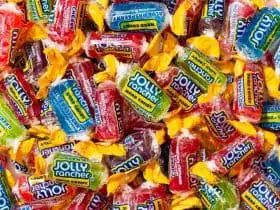

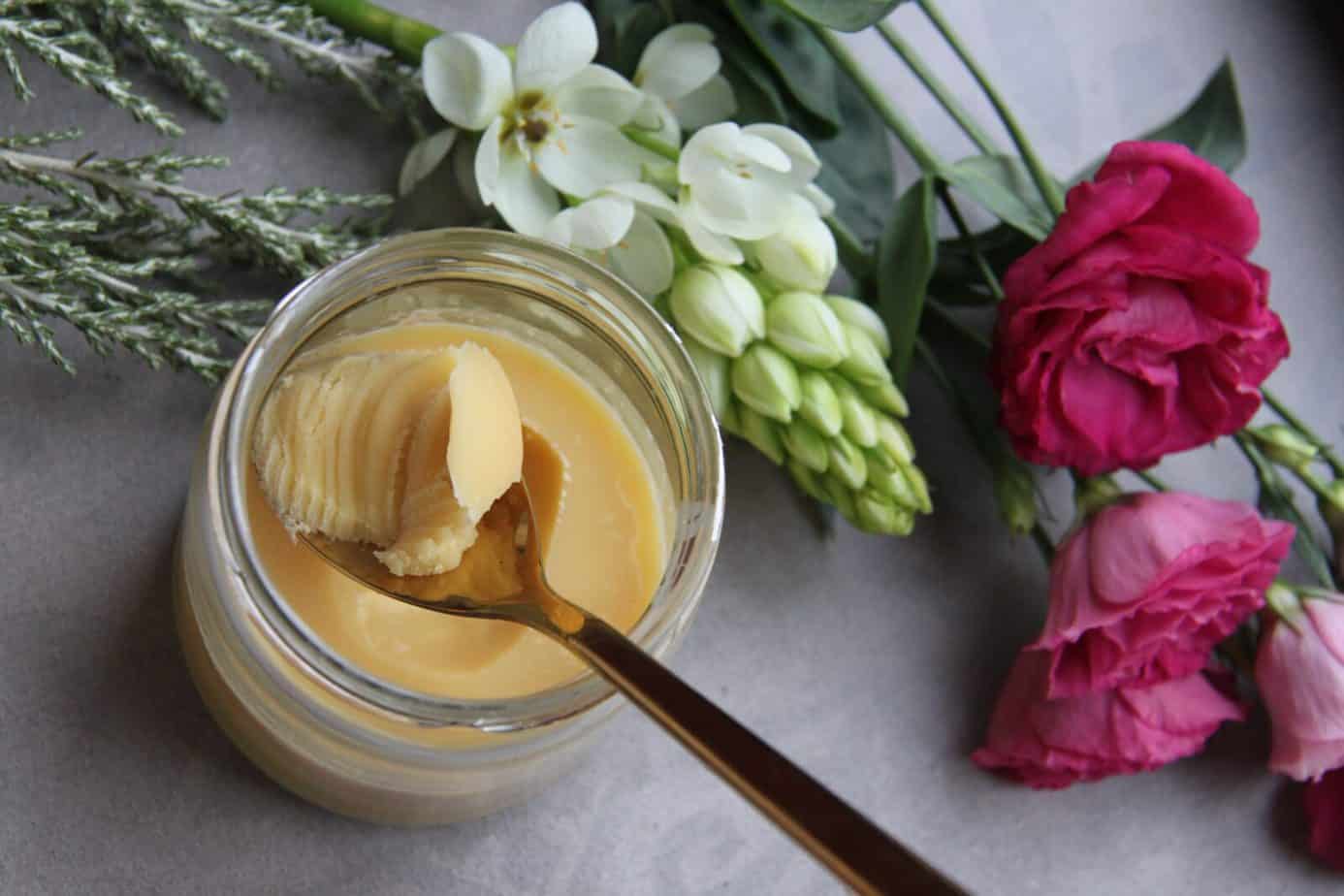
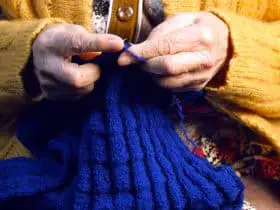
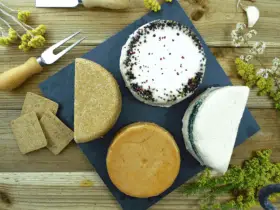
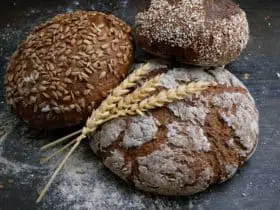


Leave a Reply